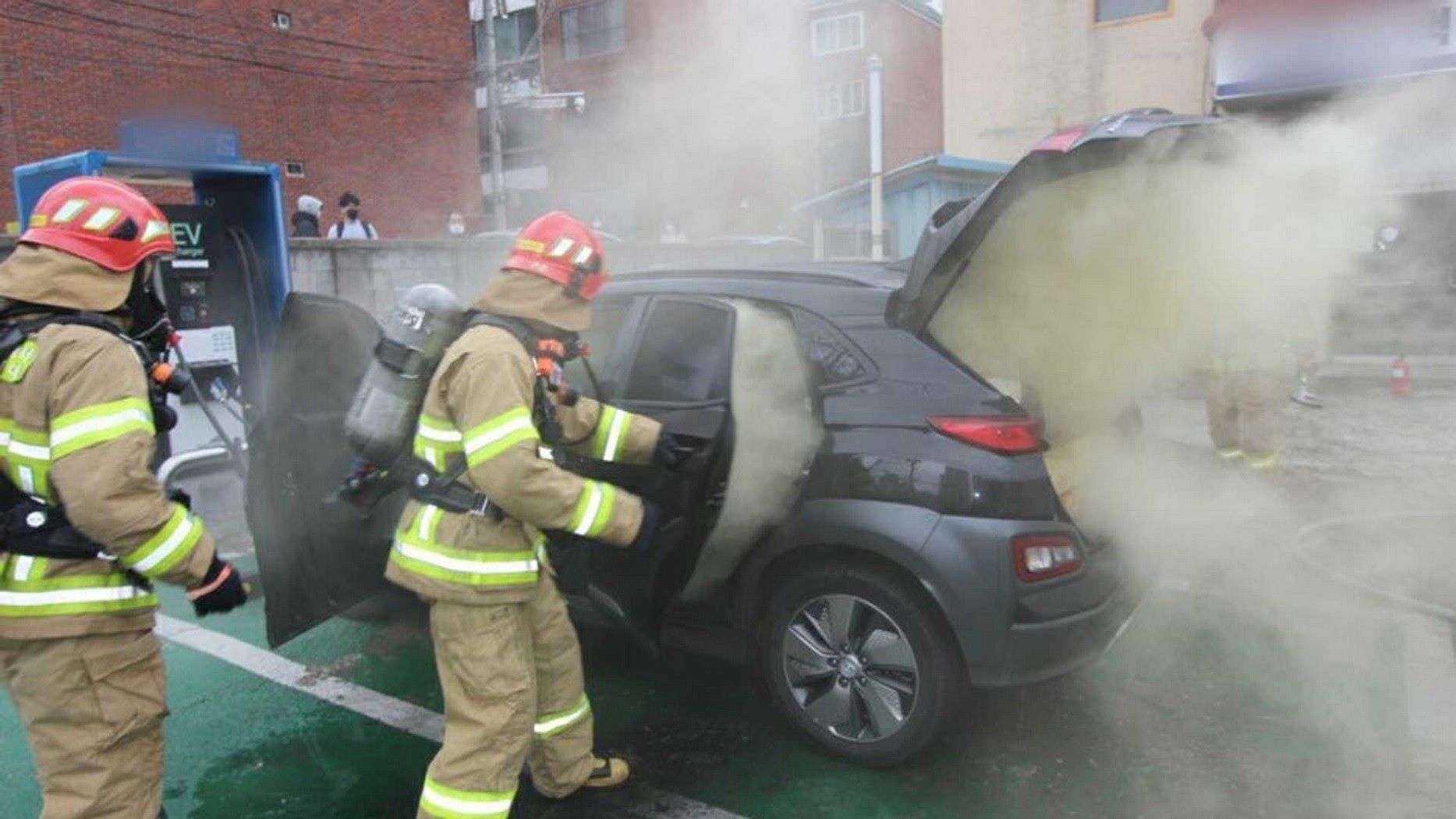Until now, fires in electric cars have been among the new and widely monitored, but statistically rare phenomena. The numbers are probably shuffled by the current convening of Hyundai and Chevrolet: after 26 fires, the complete batteries are being replaced by almost 200,000 vehicles. The supplier is Korean LG Chem, the probable cause of short circuits is poor installation of cells in China. The inner parts come loose and touch due to vibrations while driving.
Fires of battery-powered electric cars from LG Chem’s Asian plants began to appear in 2018, initially looking sporadic and accidental. However, the more they increased, the more stubbornly the supplier refused to express himself clearly, referring to the ongoing investigation. The carmakers called the cars for repairs, but only let the maximum voltage level be limited by software.
Now it comes back to them like a boomerang. A closer look revealed fallen electrodes or separators to separate the positive pole of the cell from the negative, and the number of documented incidents meanwhile climbed to nine for Chevrolet and to seventeen for Hyundai. No one lost their lives, but the damage could have been lower if the alarm had been sounded earlier.
Direct contact between the poles of an electric cell is the worst thing that can happen. In order to reduce costs, materials with a flash point of around 30 ° C are used in the insulating layers, at the same time a large amount of oxygen is bound in the electrolyte. Thus, a fast path leads from a short circuit to a fire, but extinguishing is difficult.
Defective batteries were installed in several types of vehicles. The most widespread in Europe is Hyundai Kona Electric, manufactured from November 2017 to March 2020 in Korea. The modernized version, assembled since spring 2020 in Nošovice, already uses different articles from SK Innovation.
From May to November 2019, the criticized LG Chem cells were also delivered to smaller Hyundai Ioniq EV cars, which were taken over by the Czech Police in June 2020. The Czech importer has not yet confirmed whether the convening event also applies to these cars. The intervention affects more than 80,000 Hyundai cars worldwide. The sister brand Kia has been using the articles of the competing supplier SK Innovation in its Niro and Soul electric cars from the very beginning, so it has avoided the problems described.
The event is gaining ground in the United States, where the same cells were assembled into the Chevrolet Bolt – a closely watched attempt by the largest domestic carmaker for a popular electric car for the masses. In this role, he was rolled over by Tesla Model 3, but even so, over a hundred thousand of them drive on American roads.
The safety risks of such an expanded car can shake the American public’s confidence in electromobility. All the more so because General Motors got caught up in embarrassment with two unsuccessful software modifications, after which there were further fires.
The manufacturer therefore went on the counterattack. He decided to replace the battery on all cars, including the 2020 to 22 years, openly expresses disappointment with LG Chem as a supplier and through the media already charges him in advance for the cost of the service campaign, which will probably exceed a billion dollars. In addition, it recommends that users maintain a substantially quarantine regime until the repair is performed and that vehicles are not parked inside or near homes.
This branch of the story also extends into Europe, albeit only marginally. The American concern previously also owned the German brand Opel, which sold the same car under the name Ampera-e from 2017 to 2019. There were twelve thousand cars in six western countries. It is in them that the convening event for the replacement of batteries is also announced today.
It also applies to several specimens that have strayed to us through individual imports, however, their owners are waiting for a trip to Germany. “Opel Ampera-e cars have never been put up for sale in the Czech Republic. Therefore, Opel’s service network in the Czech Republic is not authorized to service them or distribute spare parts,” said spokesman Martin Hejral.
With the number of cars and the expected costs, this is by far the most extensive safety action associated with electric cars. However, purely general laws have led to it: extreme pressure to reduce the cost of batteries, preferences for cheap suppliers, gallows deadlines leading to insufficient testing and compromises in quality management.
– .


